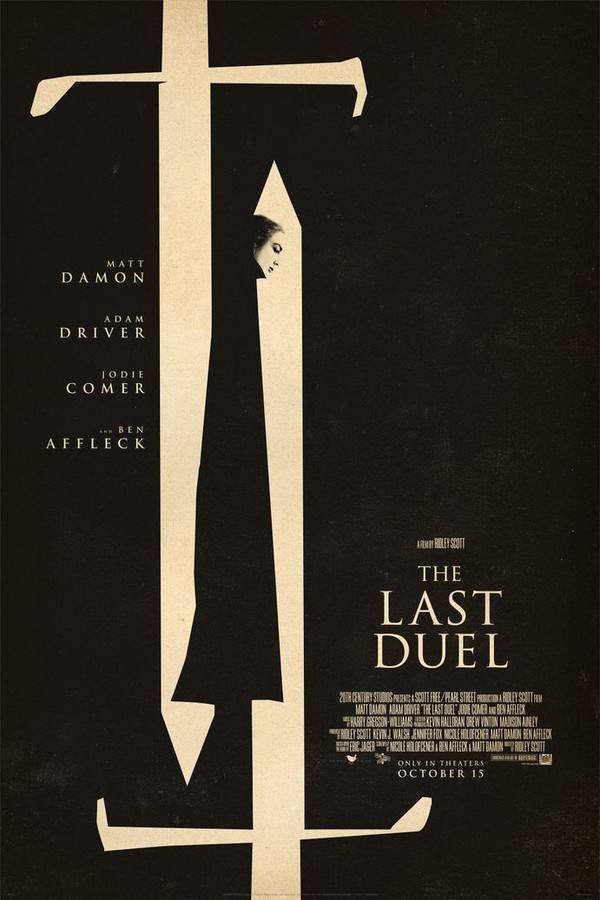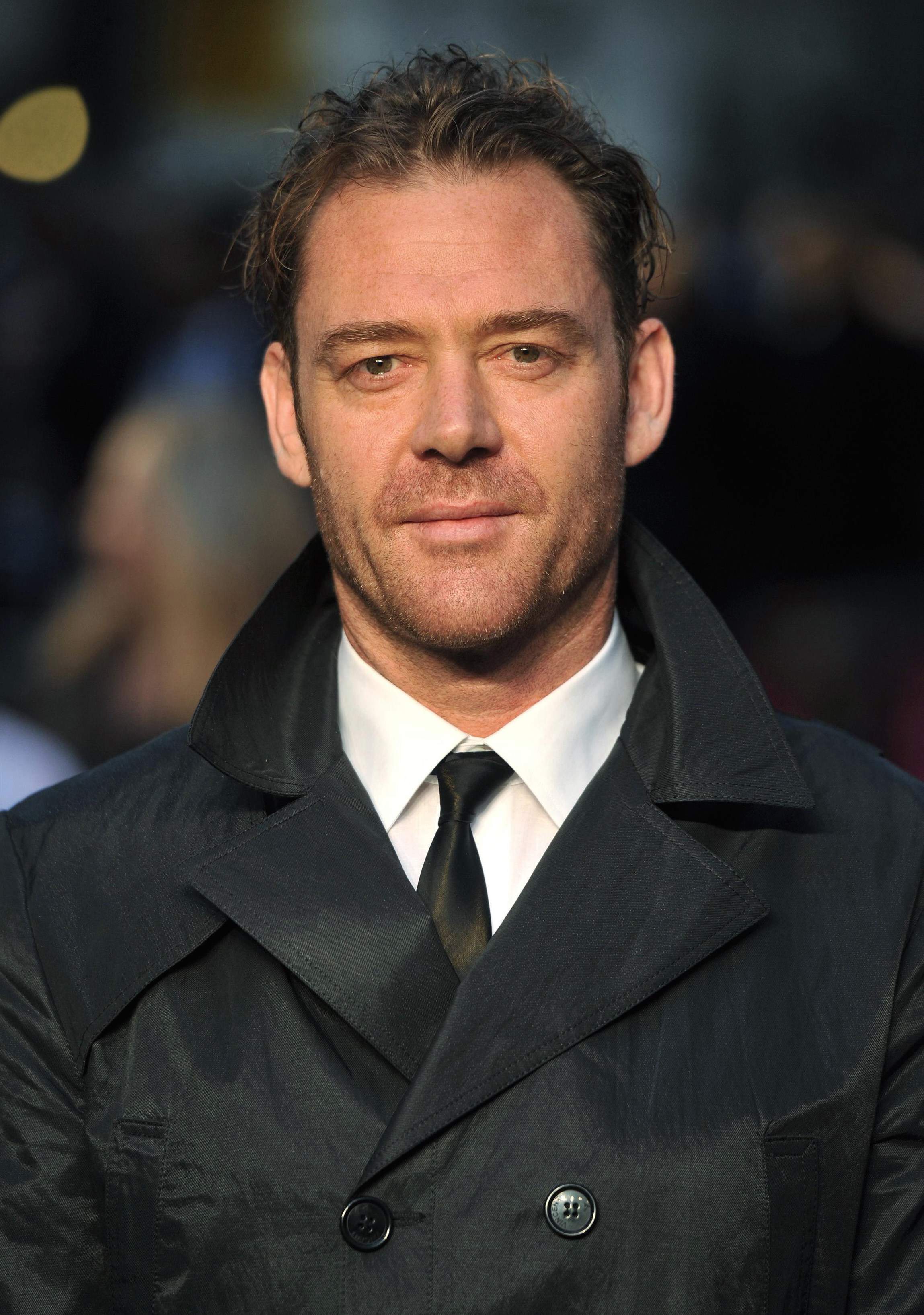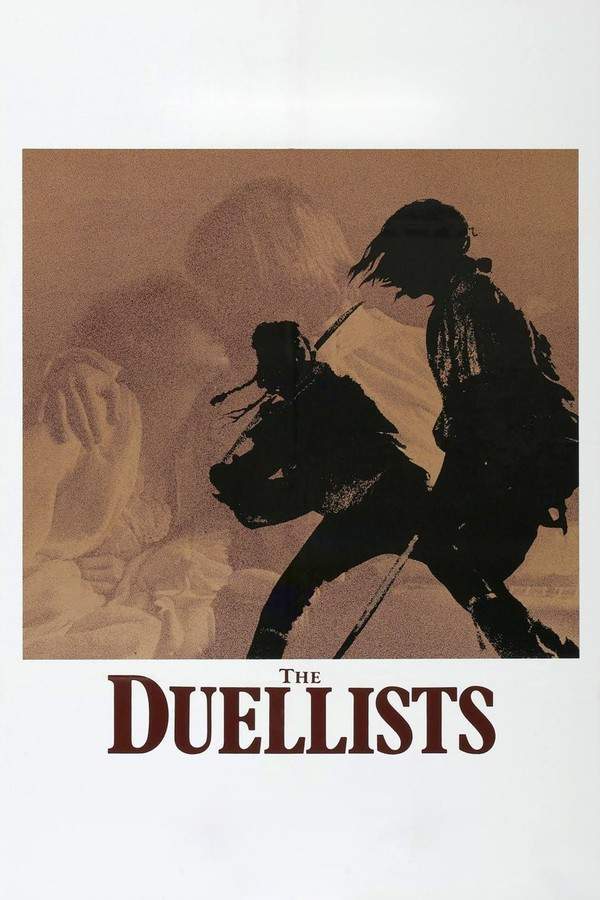The Last Duel 2021

In 14th-century France, a bitter dispute erupts between Jean de Carrouges and Jacques Le Gris, once close companions. The conflict escalates when Carrouges' wife, Marguerite, accuses Le Gris of a heinous crime, leading to a trial and ultimately, a challenge to settle the matter through a trial by combat. Both men must fight to defend their reputations and seek justice in a brutal duel that will determine their fates and leave only one survivor.
Does The Last Duel have end credit scenes?
No!
The Last Duel does not have end credit scenes. You can leave when the credits roll.
Meet the Full Cast and Actors of The Last Duel
Explore the complete cast of The Last Duel, including both lead and supporting actors. Learn who plays each character, discover their past roles and achievements, and find out what makes this ensemble cast stand out in the world of film and television.

Matt Damon
Sir Jean de Carrouges

Ben Affleck
Pierre d'Alençon

Adam Driver
Jacques Le Gris

Jodie Comer
Marguerite de Carrouges

Ian Pirie
Henri

Sam Hazeldine
Thomin Dubois

Željko Ivanek

Alex Lawther
King Charles VI

Marton Csokas
Crespin

Clare Dunne

Harriet Walter
Nicole de Carrouges

Zoé Bruneau

Aurélien Lorgnier
Carrouges' Priest

BF Mulvey

Bosco Hogan

Caoimhe O'Malley

Clive Russell
King's Uncle

Julian Firth

Michael McElhatton
Bernard de Latour

Nathaniel Parker
Sir Robert de Thibouville

Oliver Cotton
Jean de Carrouges III

William Houston
Herald at the Duel
External Links and Streaming Options
Discover where to watch The Last Duel online, including streaming platforms, rental options, and official sources. Compare reviews, ratings, and in-depth movie information across sites like IMDb, TMDb, Rotten Tomatoes or Metacritic.
Ratings and Reviews for The Last Duel
See how The Last Duel is rated across major platforms like IMDb, Metacritic, and TMDb. Compare audience scores and critic reviews to understand where The Last Duel stands among top-rated movies in its genre.

The Movie Echo Score
Overall, The Last Duel offers a meticulously crafted medieval epic that shines through Ridley Scott’s direction and a strong ensemble cast, yet its deliberate pacing and layered narrative sometimes hinder momentum. Critics commend the film’s visual ambition and thematic depth, while several reviewers note sluggish tempo and occasional tonal unevenness. Audience reactions echo this split, praising performances and production design but mentioning pacing concerns. Consequently, the film stands as a worthwhile, if uneven, experience that rewards attentive viewing.
The Movie Echo Score Breakdown for The Last Duel

Art & Craft
ART: The film’s visual craftsmanship is striking, with Scott’s sweeping cinematography and detailed production design receiving praise from critics. Viewers highlight the impressive photography and set construction, though some note occasional TV‑quality lighting and mis‑framed combat shots. Overall, the visual execution is strong despite minor flaws.

Character & Emotion
CHARACTER: Performances anchor the drama, with Adam Driver, Jodie Comer and Matt Damon drawing consistent commendation for nuance and emotional weight. Critics remark on spirited portrayals, while a few reviewers point to uneven accents and occasional flat deliveries. In sum, the character work is compelling, albeit not uniformly flawless.

Story & Flow
STORY: The narrative’s ambitious three‑perspective structure provides depth but contributes to a measured tempo that some view as protracted. Critics acknowledge the film’s thoughtful exploration of gender and honor, yet note occasional imbalance and overextension. Viewers echo this, appreciating the intricate plot while finding pacing uneven, resulting in a story that is intellectually engaging but rhythmically uneven.

Sensory Experience
SENSORY: The soundtrack and sound design reinforce the film’s gritty atmosphere, and the visual style—rich color palettes and detailed set pieces—receive consistent acclaim. Some audience members criticize the combat sequences for erratic framing, yet the overall sensory imprint remains immersive and distinctive.

Rewatch Factor
REWATCH: The film’s thematic complexity and layered perspectives reward repeated viewings, as critics note its subversive energy and thoughtful discourse. While some viewers express fatigue with its length and dialogue‑heavy sections, many audience members report increased appreciation upon revisiting, citing deeper insight into character motives. Consequently, its rewatch value is solid.

67
Metascore
7.3
User Score


85%
TOMATOMETER

81%
User Score

7.3 /10
IMDb Rating

74
%
User Score

3.7
From 449 fan ratings

4.14/5
From 7 fan ratings
Take the Ultimate The Last Duel Movie Quiz
Challenge your knowledge of The Last Duel with this fun and interactive movie quiz. Test yourself on key plot points, iconic characters, hidden details, and memorable moments to see how well you really know the film.
The Last Duel Quiz: Test your knowledge on the gripping tale of betrayal, honor, and tragedy in 'The Last Duel'.
Who is Jean de Carrouges' new overlord?
Count Pierre d'Alençon
King Charles VI
Jacques Le Gris
Marguerite de Thibouville
Show hint
Full Plot Summary and Ending Explained for The Last Duel
Read the complete plot summary of The Last Duel, including all major events, twists, and the full ending explained in detail. Explore key characters, themes, hidden meanings, and everything you need to understand the story from beginning to end.
Chapter One: The narrative unfolds through the perspective of Jean de Carrouges, portrayed by Matt Damon. Following his service in the Caroline War, Jean and his friend, the squire Jacques Le Gris (played by Adam Driver), swear loyalty to Count Pierre d’Alençon, whose authority is recognized by King Charles VI (as depicted by Alex Lawther). Tensions rise when Jacques reveals that Pierre has ordered his new vassals to contribute to war levies, leading Jean to seek leniency due to his financial struggles. To resolve his monetary issues, Jean marries Marguerite de Thibouville (portrayed by Jodie Comer), receiving a generous dowry and inheriting several valuable estates. However, Pierre has already bestowed one of Jean’s inheritance pieces upon Jacques, which sparks a legal dispute. Jean’s pleas for the land are dismissed by the King, and in a twist of fate, Pierre promotes Jacques to captain of a fort historically held by Jean’s lineage. Subsequently, Jean’s valiant efforts in a Scottish campaign earn him knighthood but leave him in dire financial straits. Upon returning home, Marguerite confides in Jean that Jacques has violated her while she was alone, which propels Jean into a fierce resolve to challenge Jacques to a duel to the death—an appeal granted by King Charles VI.
Chapter Two: As we shift to Jacques’s point of view, we discover how he gains Pierre d’Alençon’s (played by Ben Affleck) confidence through his adeptness in managing finances, paving his way into the court’s inner circle. Jacques becomes infatuated with Marguerite, persuaded by her moments of kindness that she may reciprocate his feelings. With Jean away, Jacques manipulates circumstances to find himself alone with Marguerite, using a ruse involving a servant to gain entry to her chambers. He ardently professes his love, but Marguerite, steadfast in her marriage, insists they leave. Defying her wishes, Jacques pursues her into her bedroom, where he forcibly engages with her, believing her compliance to be consensual. After their encounter, he warns Marguerite to keep silent about the event. Later on, word of Jean’s accusations against Jacques regarding Marguerite reaches the count, but even as Pierre tries to dismiss the claims, Jean seeks an audience with King Charles and insists on a duel.
Chapter Three: The perspective shifts once more to Lady Marguerite de Thibouville. As her marriage faces trials due to her inability to conceive, Marguerite reveals her true intentions for being kind to Jacques—primarily to secure favor at court. Despite Jean’s strict orders to remain in the castle, his mother contravenes them, taking the servants on errands. Jacques seizes this opportunity, once again entering the castle to impose himself on Marguerite. He brazenly declares his affection, ultimately committing a violent act against her. Following her husband’s return, Marguerite discloses the assault, prompting Jean’s mother to pressure her to retract her claims for the family’s sake. The tension escalates when Marguerite learns she is pregnant amidst the ongoing trial against Jacques, yet she stands firm in her revelation. King Charles VI permits the duel to proceed. Marguerite is confronted by Jean, who neglects to inform her of the dire consequences she may face if he loses; shortly thereafter, she gives birth just days before the fateful duel. The confrontation escalates to ferocious jousting between Jean and Jacques, eventually transitioning to a gruesome hand-to-hand battle. Jean is wounded but ultimately overpowers Jacques and demands a confession or face condemnation. Jacques maintains his innocence until the bitter end, and Jean, in a moment of triumph, ends Jacques’s life. While Jean revels in his victory, Marguerite follows quietly behind, burdened by her ordeal.
In a somber epilogue, we learn that Jean met his end while fighting in the Crusades a few years later. Meanwhile, Marguerite persevered, managing the estate and living a tranquil life for the next thirty years, choosing never to remarry again.
Uncover the Details: Timeline, Characters, Themes, and Beyond!

Coming soon on iOS and Android
The Plot Explained Mobile App
From blockbusters to hidden gems — dive into movie stories anytime, anywhere. Save your favorites, discover plots faster, and never miss a twist again.
Sign up to be the first to know when we launch. Your email stays private — always.
Watch Trailers, Clips & Behind-the-Scenes for The Last Duel
Watch official trailers, exclusive clips, cast interviews, and behind-the-scenes footage from The Last Duel. Dive deeper into the making of the film, its standout moments, and key production insights.
The Last Duel Themes and Keywords
Discover the central themes, ideas, and keywords that define the movie’s story, tone, and message. Analyze the film’s deeper meanings, genre influences, and recurring concepts.
The Last Duel Other Names and Titles
Explore the various alternative titles, translations, and other names used for The Last Duel across different regions and languages. Understand how the film is marketed and recognized worldwide.
Similar Movies To The Last Duel You Should Know About
Browse a curated list of movies similar in genre, tone, characters, or story structure. Discover new titles like the one you're watching, perfect for fans of related plots, vibes, or cinematic styles.
Quick Links: Summary, Cast, Ratings, More

What's After the Movie?
Not sure whether to stay after the credits? Find out!
Explore Our Movie Platform
New Movie Releases (2025)
Famous Movie Actors
Top Film Production Studios
Movie Plot Summaries & Endings
Major Movie Awards & Winners
Best Concert Films & Music Documentaries
Movie Collections and Curated Lists
© 2025 What's After the Movie. All rights reserved.
































